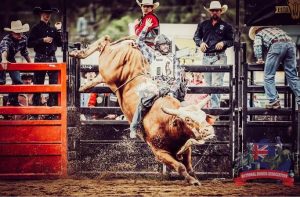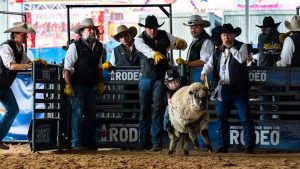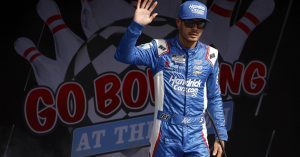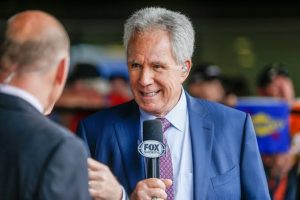
The Houston Rodeo, officially known as the Houston Livestock Show and Rodeo, is one of the largest and most iconic rodeos in the United States.
Held annually in Houston, Texas, the event has become a major cultural celebration that attracts over 2.5 million visitors each year. The rodeo, which spans about 20 days in February and March, is not just a showcase for rodeo competitions but also a hub for concerts, carnival rides, educational programs, and charitable contributions.

A Legacy of Tradition and Impact
Since its inception in 1932, the Houston Rodeo has evolved from a small livestock show to an expansive event that draws international attention.
It features a wide range of competitions, including bull riding, barrel racing, and tie-down roping, where skilled athletes demonstrate their expertise in front of passionate crowds.
The rodeo also provides an opportunity for local farmers and ranchers to showcase their livestock, contributing to the agricultural education that is central to the event’s mission.
In addition to rodeo competitions, the event hosts concerts featuring top country, pop, and rock artists. Over the years, it has attracted major stars like Beyoncé, George Strait, and Luke Bryan, making it a must-attend event for music lovers.

These performances, held in the NRG Stadium, are a significant part of the rodeo’s cultural appeal and contribute to its reputation as a leading entertainment event in the region.
Community and Educational Contributions
One of the defining aspects of the Houston Rodeo is its commitment to community engagement and education. The event is not just a celebration of Texas culture but also a vehicle for giving back to the community.
Through its various programs, the Houston Rodeo has raised millions of dollars for scholarships, educational initiatives, and youth programs. The Rodeo’s Educational Program has funded more than $200 million in scholarships and other educational opportunities since its inception.
The Houston Rodeo also places a strong emphasis on agricultural education. The event hosts youth competitions and provides learning opportunities for children to engage with animals, farming, and ranching. It allows them to understand and appreciate the value of agriculture in their everyday lives.

The Houston Livestock Show, which is part of the broader event, showcases the state’s rich agricultural history while promoting a future generation of farmers and ranchers.
Challenges and Adaptations
Like many large-scale events, the Houston Rodeo faced unprecedented challenges due to the COVID-19 pandemic. In 2020, for the first time in its history, the event was canceled to prevent the spread of the virus.
This decision was heartbreaking for many attendees, vendors, and performers, but it demonstrated the commitment to public safety and well-being. The pandemic also led to the introduction of new safety protocols in subsequent years, with increased health measures and a focus on creating a safe environment for attendees.
Despite these challenges, the rodeo has proven resilient, bouncing back stronger than ever. The 2021 Houston Rodeo implemented a number of safety measures, such as requiring masks and limiting capacity in certain areas. These steps were crucial in maintaining the spirit of the event while protecting the health of participants and spectators.
Looking Ahead
As the Houston Rodeo continues to grow, the organization remains focused on preserving its traditions while adapting to the changing times. With its blend of entertainment, education, and community involvement, the rodeo plays an integral role in the cultural fabric of Texas. Each year, it brings together people from all walks of life, uniting them in a celebration of western heritage, music, and community.
With ongoing efforts to increase sustainability, enhance safety, and further its educational initiatives, the Houston Rodeo looks poised to continue its legacy for years to come. Whether you’re a first-time attendee or a long-time fan, the event promises an unforgettable experience that embodies the spirit of Texas and the enduring appeal of rodeo culture.





